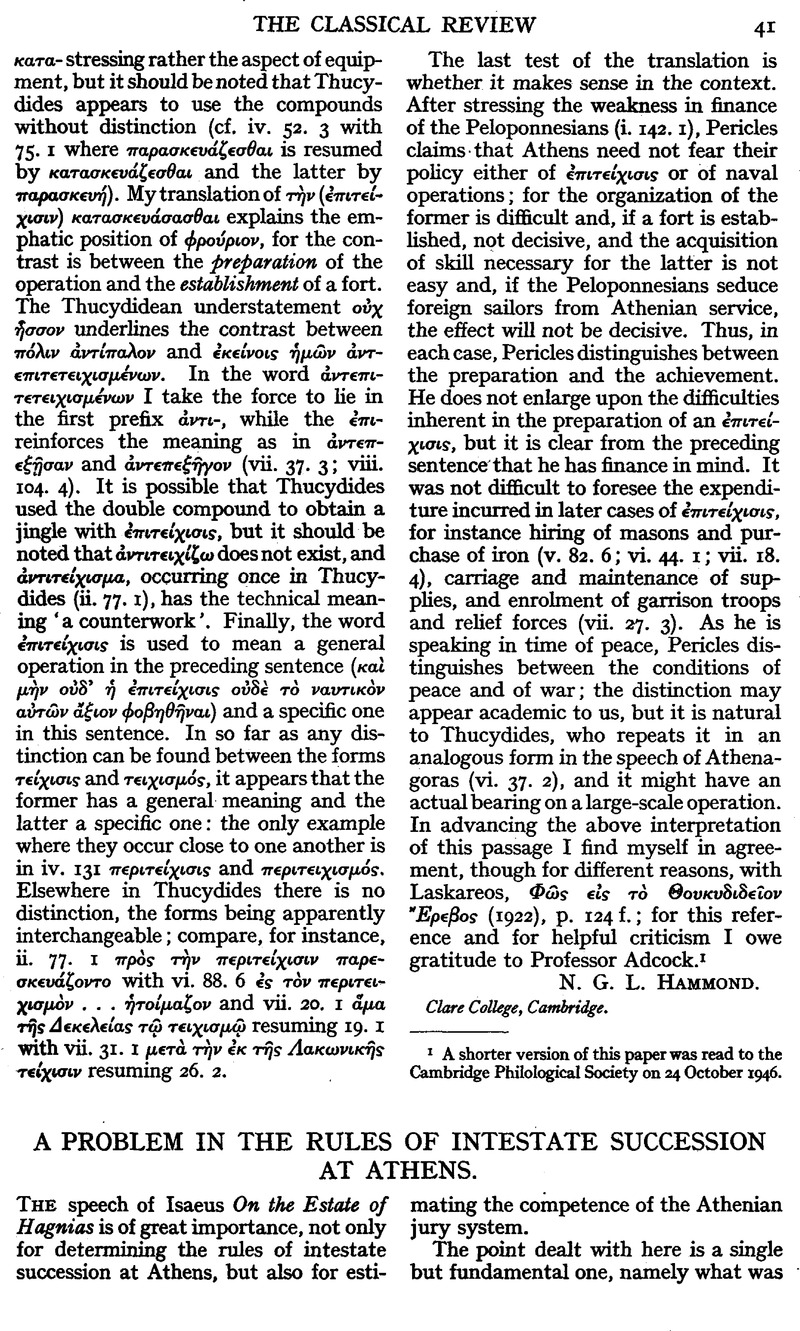No CrossRef data available.
Article contents
A Problem in the Rules of Intestate Succession at Athens
Published online by Cambridge University Press: 27 October 2009
Abstract

- Type
- Review Article
- Information
- Copyright
- Copyright © The Classical Association 1947
References
page 42 note 1 We are unfortunately very ill informed as to the nature and scope of these preliminary proceedings. But it can be inferred from § 21 of this speech that a claimant would be required in them to go into some detail as to his relationship with the deceased and could not get away with a mere description of himself as, e.g., ⋯νεΦι⋯ παῖς. We are there told τοῖς κατ⋯ ⋯μφισβμο⋯σιν εἶς τ⋯θεταικαδ⋯σκοσ. Now if the jury had to give a single opinion on several distinct, but identically grounded, claims, the fact that the claims really wer identically grounded, must have been established during the preliminaries.
page 43 note 1 ‘Scilicet non Hagniae fuit consobrinus, sed Hagniae patris Philagrus; vereor ne hic quoque ut Isae. XI 10 tenebras offundat orator.’
page 43 note 2 Lipsius, , Das Attische Recht, p. 554Google Scholar, and literature there cited.
page 43 note 3 It might seem at first sight attractive to adopt the conjecture of Bunsen, De lure Hereditario Atheniensium, p. 30, for filling the gap in the law. After the words⋯δελφ⋯ν παῖδες he proposes to read ⋯δελφ⋯ς κα⋯ παῖδας ⋯ξ αὐτ⋯ν λαγχ⋯νειν. ⋯⋯νδ⋯ μ⋯ ⋯δελφα⋯ ὦσινῆ παῖδες ⋯ξ αὐτ⋯νγΨιο⋯ς κα⋯ παῖδας ⋯ξ αὐτ⋯ν κατ⋯ λαγχ⋯νειν. But that would mean that not only would first cousins of the deceased succeed in preference to their own fathers, but that first cousins of the deceased's father would come in to the exclusion of the deceased's paternal uncles, which appears impossible.


